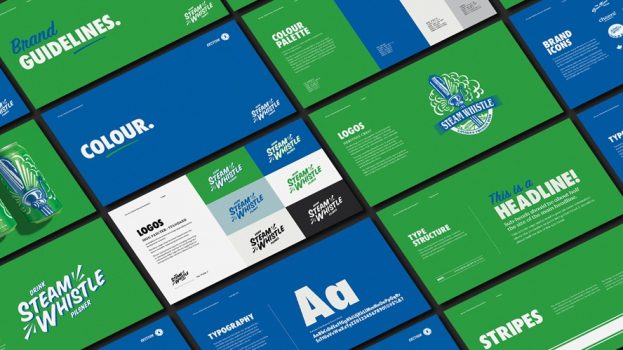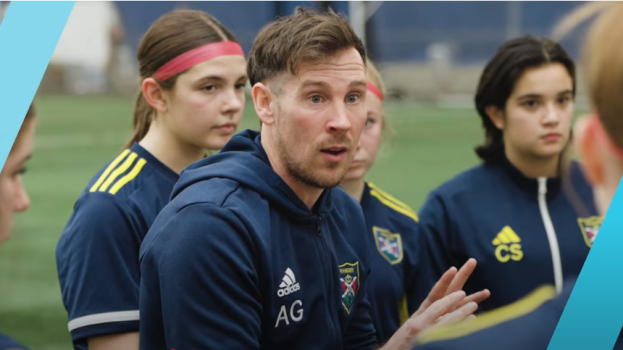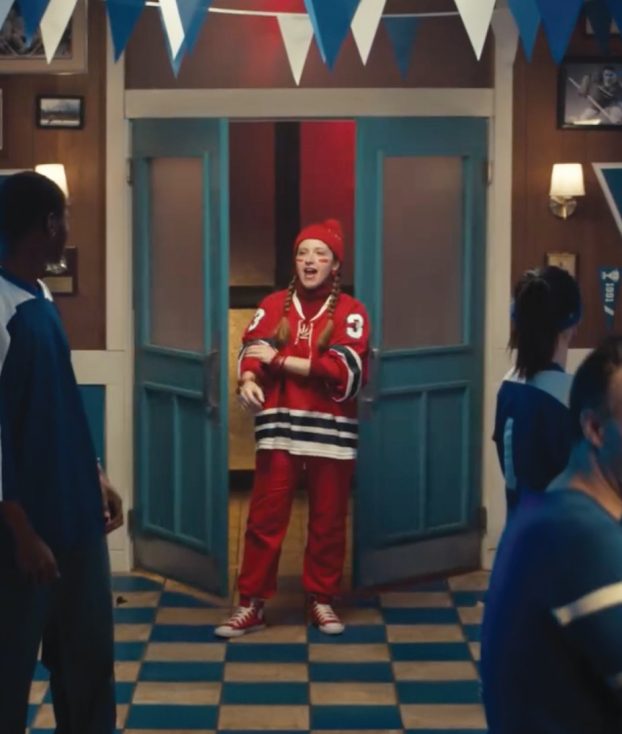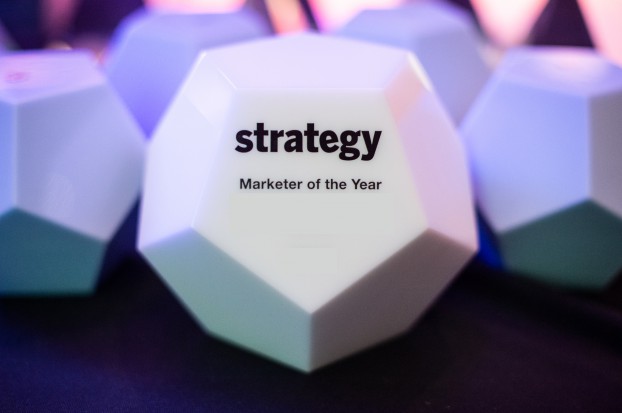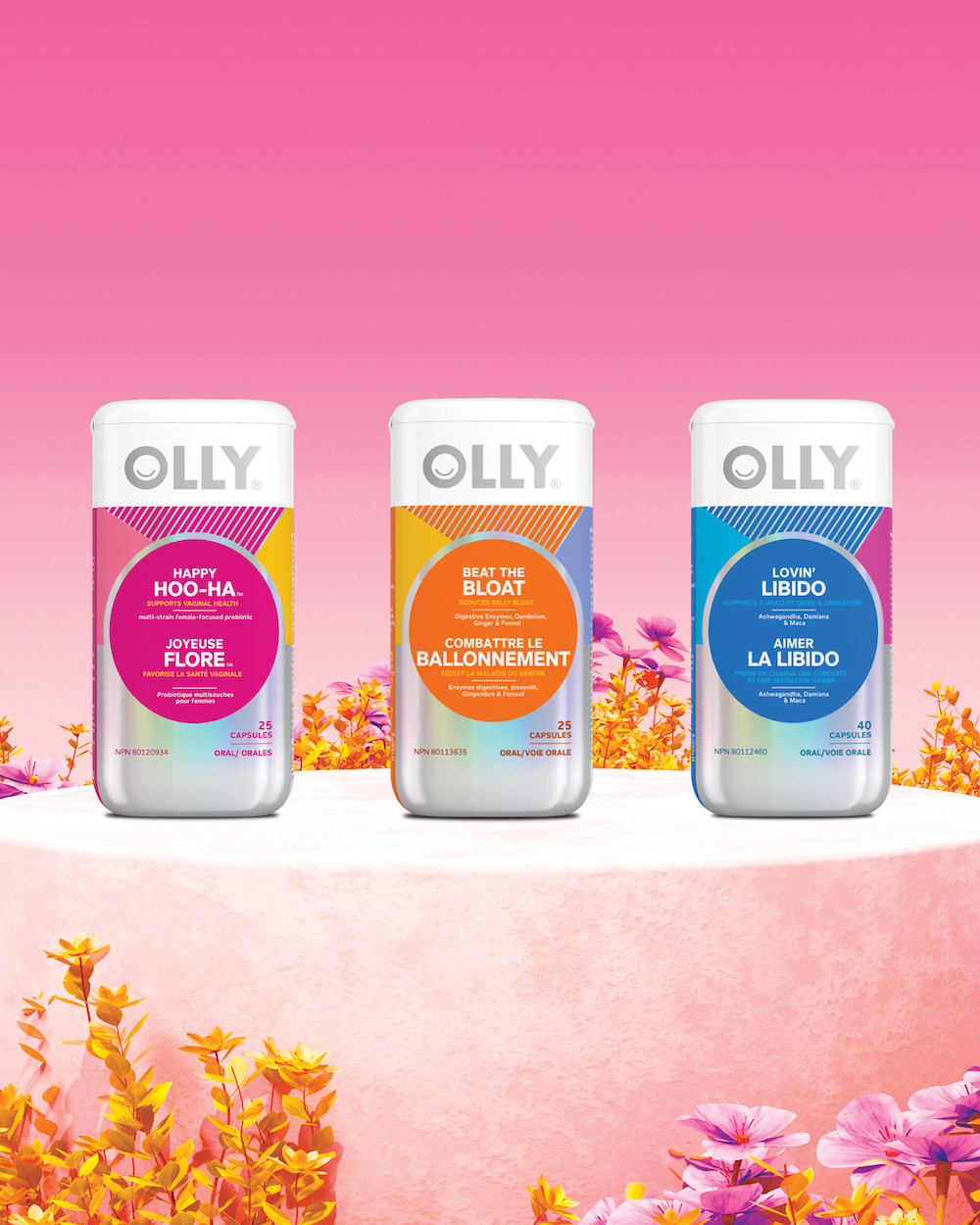
Olly Canada, a brand that focuses on wellness products for women, released a new product range – the Modern Woman’s line – and an ad campaign this August. The line, which includes capsule vitamin supplements called Lovin’ Libido, Beat the Bloat and Happy Hoo-Ha, revolves around empowering women and catering to needs in their health that may go unaddressed, things like a healthy sex drive.
The brand is offering women-centric solutions while attempting to reshape the narrative around women’s health. But marketing the product line, came with unforeseen challenges. Unilever claimed that the brand was “given the side-eye” when it attempted to place ads in market, particularly for creative that contained the word “vagina.” One of its ads that used the Happy Hoo-Ha product name was outright rejected, the company said. The team had to rethink some of its advertising, but it did manage to run a series of OOH boards on Toronto and Vancouver’s transit system that featured shots of the product line alongside contextual copy like “Libido for a Queen” on a Queen St. street car.
Here, Leslie Golts, head of marketing of the beauty & health division at Unilever, talks about working on Olly’s Modern Woman’s supplement line and how her team navigated restrictions when it came to spreading the brand’s message.
What was it like working on a product line that’s about an often taboo conversation like vaginal health?
It’s been super exciting for me as someone who’s been marketing consumer products often aimed at women. This was one of the first times where I really felt like we had a true opportunity to further the conversation around women’s well-being in a unique way. A fun, playful way, while also being open and honest in how we bring this product line to life. I was very excited about it. The whole team was – everyone across the agency teams and internally. We really wanted to advance women’s well-being, promote open conversations, and contribute to a future that embraces shame-free women’s health. And the products themselves have great names like Lovin’ Libido. They’re bright, they’re fun, and they’re colourful. When we were creating the campaign, we really felt like we had everything we needed to go to market in a big way.
And then once we started sending out the ads to where they needed to go, we began receiving pushback. The word “vagina,” for example, is not okay on every platform. Additionally, some of the ways in which we originally wanted to depict the woman’s body to bring the campaign to life was deemed “too suggestive.” It was a setback. And I would say, certainly, some members of the team were quite disappointed. I think there has been a lot of progress in this space, but there is very clearly, to us, more progress that needs to be made. And we want to be part of that. We want to be a brand that is helping move that conversation along, and being loud and proud about it.
Why do you think at this time the word “vagina” is deemed unacceptable?
I would say I was taken a bit by surprise. To me, as a woman, it’s anatomy. And I have children, and they have anatomy. And we call anatomy what it is. I certainly hope to be part of future changes and making sure that this isn’t a taboo topic and that everybody can find products easily to address the challenges they may have and support their needs – to know that these challenges and needs are normal, and there are products out there for them.
Can you give us an idea of how prevalent this issue was for this campaign?
This reaction was quite common and across many different types of channels, not just one. It just really points to the fact that we need to make noise about it. It’s our role as a brand in this space. Change won’t happen unless we make sure that this is brought to the attention of everyone.
Did these media platforms further the conversation about why certain words or depictions are or aren’t permissible?
No. I will say that, in some cases, we tried multiple rounds and different ways of getting our message across. Like, for example, having an asterisk or blurring out words. It got to a point where I was thinking why are we even advertising anything if we can’t say anything? And that’s when the team came together and we came back out with a clever approach. It was a great challenge as a marketer because when you do get around issues and you’re able to get your message out it can be very impactful. This was our first time encountering this as Olly. It was an interesting learning for all of us on how best to get the message across.
What kind of feedback have you received since the final campaign roll out?
Mostly quite positive. Our positive sentiment scores are in the 90s, there are really engaged communities online. At our launch event, we had amazing feedback and very suggestive waffles. That was another playful way that we made sure the message was coming across and that we were putting a spotlight on the situation. I hope that we will continue to be able to make more of a splash. I will also say the sales uplift since we’ve launched has been quite strong as well, beating our expectations. We did go live a little bit later than we had anticipated due to all of the changes we had to make but all in all, it’s working out quite well.
But beyond all of this, we really just want this space to be shame-free. And we hope that women will know that when it comes to their well-being and sexual health, there are products out there for them conceived by women, for women.

